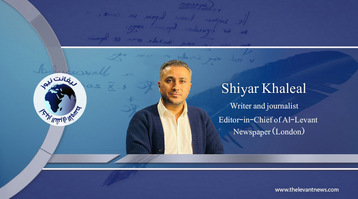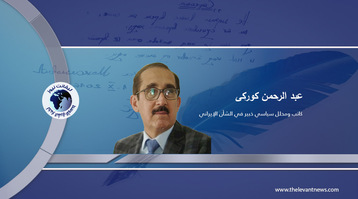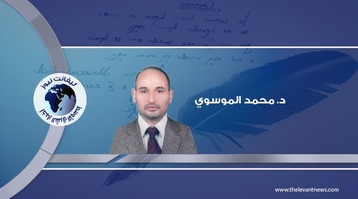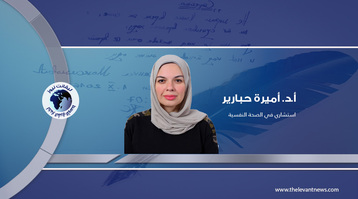-
Arab-Israel Solidarity: Giving Iran Something to Fear

At the conclusion of the historic Negev Summit, held in Israel on March 27-28, with the participation of foreign ministers of Egypt, Morocco, Bahrain, the United Arab Emirates (UAE), and the United States, the Israeli Prime Minister, Yaer Lapid, boldly noted that this summit is giving Iran something to fear.
“The shared capabilities we are building intimidates and deters our common enemies, first and foremost Iran and its proxies;” Lapid emphasized. Indeed, the unprecedented showcasing of solidarity between Arabs and Israelis, a few kilometers away from the grave of David Ben Gurion, the founding father of Israel, is something that should make the hearts of the Iranian regime shiver in panic.
If nothing else, the Negev Summit has, forever, undermined the basis of the extremist ideological rhetoric of “eliminating Israel,” which Iran and its sponsored militia and proxies, as well as all the terrorist organizations in the region, have been employing to gain public sympathy, and legitimizing their unjustified military activities in the region, including the ongoing process of nuclear proliferating.
Since the Islamic Revolution took over Iran, Israel has remained the foremost target of the Iranian hate and military attacks. Sadly, this used to be widely tolerated by most Arab countries due to their sympathy with the Palestinians. For a long time, the Israel-Palestinian conflict used to be labeled an “Arab-Israel” conflict. In 2006, when the war erupted between Israel and Hezbollah, in southern Lebanon, the Arab media showed an exaggerated bias to Hezbollah against Israel. Many of them went as far as portraying Hassan Nasrallah, the leader of Hezbollah, as a “super hero” of Muslims and Arabs.
However, things have changed a lot since the eruption of the Arab Spring revolutions, in 2010/2011. The crucial change in Arab countries’ positions on Israel and Iran is not a sudden shift, but it has been brewing for at least ten years, due to two main factors. One of them is the fact that the Arab Spring revolutions threw out the long-established dictators, who used to magnify the Israel-Palestinian conflict to distract their citizens from protesting the failure and corruption of their regimes. Egypt is one of the most apparent examples on this shift in government and public attitudes towards Israel after the Arab Spring.
The other factor has to do with the deterioration of the relationship between Iran and its Arab neighbors in the Gulf region, after the rise of the Iran-sponsored Houthi milia to power in northern Yemen. Since 2015, the Houthi has been showering Saudi Arabia and the UAE with Iran-made missiles and drone attacks.
On a larger scale, Iran sponsored militia and proxies are wreaking havoc all over the Levant region, starting from Hezbollah in Lebanon and Syria, up to Iran proxies in Iraq. Today, the Iranian mullah regime, via their sponsored militias, are literally dictating the course of politics and decision-making in Iraq. Two years ago, these militia assassinated, with cold blood, young Iraqi political activists, who dared to oppose Iran’s intervention in their domestic politics. Last year, these Iran-sponsored militia attempted to assassinate the Iraqi Prime Minister, using Iran-made armed drones, after the elections.
Despite that, the U.S. Administration of President Biden is proceeding with appeasing Iran to sign a nuclear deal that most the concerned countries in the region view as a direct threat to their national security. Before the Negev Summit, U.S. Secretary Blinken tried to assure the Israel Prime Minister, Naftali Bennett, that the deal with Iran will not stop the United States from protecting the national security of Israel or other regional allies.
“Deal or no deal, we will continue to work together and with other partners to counter Iran’s destabilizing behavior in the region,” Blinken said. However, the actions of the United States give a different message, especially Biden Administration’s persistence on removing the Iranian Revolutionary Guard Corps (IRGC) from the list of foreign terrorist organizations (FTO), and before that removing the Houthi militia in Yemen, from the FTO list.
Now, it seems that the many escalating regional and global threats around and within the Middle East region are literary pushing the countries of the region to stand together as one front, and in the process pressing the finest juices of peace out of the Middle Eastern body, to replace decades of deep-rooted political and ideological animosity.
BY: Dalia Ziada
You May Also Like
Popular Posts
Caricature
Syrians' concerns now
- December 10, 2024
Syrians' concerns now #Syria
#Bashar_al-Assad
#Liberation_of_Syria
#Syrians
#Future_of_Syria
#Levant_News

opinion
Report
ads
Newsletter
Subscribe to our mailing list to get the new updates!




















